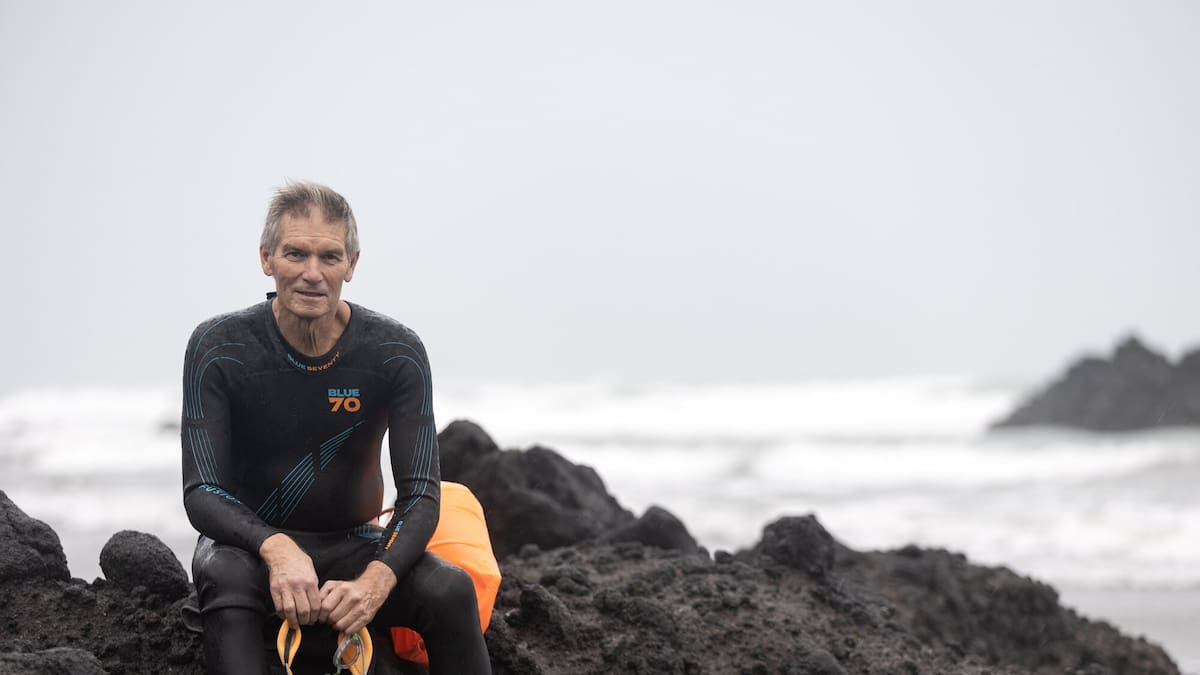“I could have left some big business or structure behind me.”
Possibly that’s why he’s not quite ready to give up work yet, admitting that he fears retirement. Also, he enjoys what he does.
Hawes no longer works as a financial adviser but he still speaks at seminars, writes columns and has recently published his 24th book, Retirement Ready (Upstart Press, $39.99), an easy-to-read guide on what to do, and what not to do, when planning for retirement. It covers everything from investments, insurance and retirement villages to wills, trusts and decluttering.
The book includes a fair bit of Hawes’ personal experience in retirement planning, something he admits he hasn’t always got right. For a start, when he decided five years ago to leave Queenstown, his home for 20 years, and settle in Christchurch he bungled his house purchases.
“I bought two houses at least that were completely wrong.”
He thinks all that buying, selling and moving since his decision to leave Queenstown – to be closer to two of his children and his four grandchildren – cost him in the order of $200,000. Still, he’s happy where he is now.

He can pad across the road in his wetsuit and indulge in one of his new hobbies, open-water swimming, in some of the time he’s freed up since letting his licence as a financial adviser lapse.
That move was his second attempt to ease back. He tried it seven years ago but, in response to pressure from people who wanted advice, he started up again. Letting go of careers and “decluttering” is harder than it seems, he says.
Loading 2000 of his treasured books into a van and delivering them to a Rotary Club book sale was a wrench, brought on by the downsizing of houses. A lifetime of climbing gear and ice picks, some obsolete, are harder to part with.
‘My own lost youth wells up’
Lawes writes in his book, “I realise that I will probably never go ice climbing again – sorrow for the ice axes and my own lost youth wells up.”
Getting rid of “stuff” is difficult because nearly every object is attached to a life memory, he says. Decisions to get rid of them are “tinged with grief”.
Apart from decluttering the garage, Hawes decluttered his everyday life – transferring management of his investments to professionals, ending his financial advice business, winding up a family trust, resigning from most of the boards with which he was involved, and amending his will to bequeath amounts to his grandchildren’s KiwiSaver accounts.
He also cancelled his health insurance.
Just months later he found himself forking out for two unexpected operations, at a cost of $30,000, which chewed into his $150,000 health insurance fund. The plan was to keep paying the monthly $500 premium into his own fund.
“You could argue that I got this insurance wrong,” he writes in Retirement Ready. “My plan to self-insure looked like it was blown out of the water.”
But in hindsight, he’s come to terms with his decision. Whether or not to let health insurance lapse is the most common question Hawes is asked in seminars, particularly from an older audience.
Many simply can’t afford the soaring premiums as the years advance.
Hawes now has experience in both the private and the public systems. His two operations revealed that he had cancer, treatable but still cancer. He describes his experience as an outpatient at Christchurch Hospital as “excellent”.
“I just couldn’t fault it.”
However he’s aware that, given the shortages of medical staff, the experiences of those admitted to hospital or waiting for non-urgent appointments may not be so good.
And he acknowledges cases like psychologist and TV personality Nigel Latta, who credits his access to private medical insurance and an unfunded drug with helping to save his life after he was diagnosed with terminal bowel cancer.
Hawes also covers other insurance costs, pointing out that while US billionaire Warren Buffet may be able to risk not insuring his houses because he has plenty of cash with which to rebuild, the average Kiwi does not.
Hawes is constantly assessing his insurance risk, insuring that which he would not be able to cover and putting the highest excess on other policies like household contents.
“We are meant to insure the risks we can’t afford to take. I think that’s the key principle.”
Those regular outgoings are worth reassessing regularly, he says, much like updating your will. People are living longer and they worry about running out of money.
“Work doesn’t finish with a bang anymore,” Hawes says. Instead, it’s more like a slow wind-down.

Hawes’ father was a case in point. A doctor in public hospitals, he practised until the year before he died aged 81.
Many Kiwis don’t have work or savings to rely on once they retire.
Around 40% of Kiwis aged 65 and over don’t have any savings, surviving off superannuation alone. Another 20% have a small amount, around $100 a week, coming in. And tellingly, 48% of 65 to 69-year-olds are still working.
Start saving early
Hawes says people don’t start thinking about retirement savings early enough. They’re busy paying off mortgages, raising a family and saving up to take the kids on holiday.
“It’s pretty hard for a lot of families at the moment.”
If Kiwis have a healthy KiwiSaver it’s not much of an issue.
“The problem is that we’re not saving enough through KiwiSaver.”
The contribution rate of 6% (3% from the employee and 3% from the employer) is half that Australia’s 12%. And he thinks the law that allows employers to stop contributing to KiwiSaver once an employee turns 65 needs to change.
“I think it’s a disgrace actually that somebody clicks over a birthday and they get a pay cut of 3%.”
Hawes has saved well and wants a comfortable life in retirement, including an annual climbing trip to Europe.
He’s aiming for a $100,000 a year income, including $20,000 from NZ Super, which means he’ll need around $1.3 million invested at a draw-down of 6%.

He’s aware that for many retirement-age Kiwis their main asset is their home. But he warns about selling the family home and moving to a new region to free up cash. Loneliness, away from family and old friends, can become an issue.
He says people should consider staying in their homes but using home equity release, whereby homeowners effectively borrow against the value of their home, to free up money.
An alternative is “home reversion” where the homeowner sells a small percentage of the house each year for 10 years, say between the ages of 70 and 80.
After 10 years the provider Lifetime Retirement Income (of which Hawes is a shareholder) owns 35% of the property but the owner can remain in the house indefinitely.
Hawes shares three biggest mistakes people make in terms of their retirement:
- Not planning early enough.
- Worrying that if they draw too much from their investments their money will run out. In Hawes’ experience most Kiwis under-spend in their retirement.
- Investing in a single asset class, such as term deposits, rather than diversifying across all asset classes (shares, listed property, cash, fixed interest).
And three pieces of advice to think about when preparing for retirement:
- Have a vision (an attractive one) about what the last third of your life looks like – where you want to live, if you want to travel or own a beach house. Then set a numeric goal – how much you will need to save to achieve that vision.
- Start thinking about part of your income as for “you and now”, and the other part for “you and the future” rather than retirement. Says Hawes: “You’re saving for you and the future, and for a better lifestyle.”
- Diversify, diversify, diversify in terms of investments. Invest in all of the asset classes including, most crucially, some money invested offshore.
Hawes expands on that last point.
“As much as I love this little country and I choose to live here, I’m not going to have all my money here. It’s got a small economy and a brittle economy.”
Much of the development of technology, including AI, medical devices and clean tech, tends to happen in places like the US and Europe rather than in New Zealand.
“All the different things that are happening in the world of technology provides an opportunity for investors that they really need to take advantage of.”
Jane Phare is a senior Auckland-based business, features and investigations journalist, former assistant editor of NZ Herald and former editor of the Weekend Herald and Viva.






